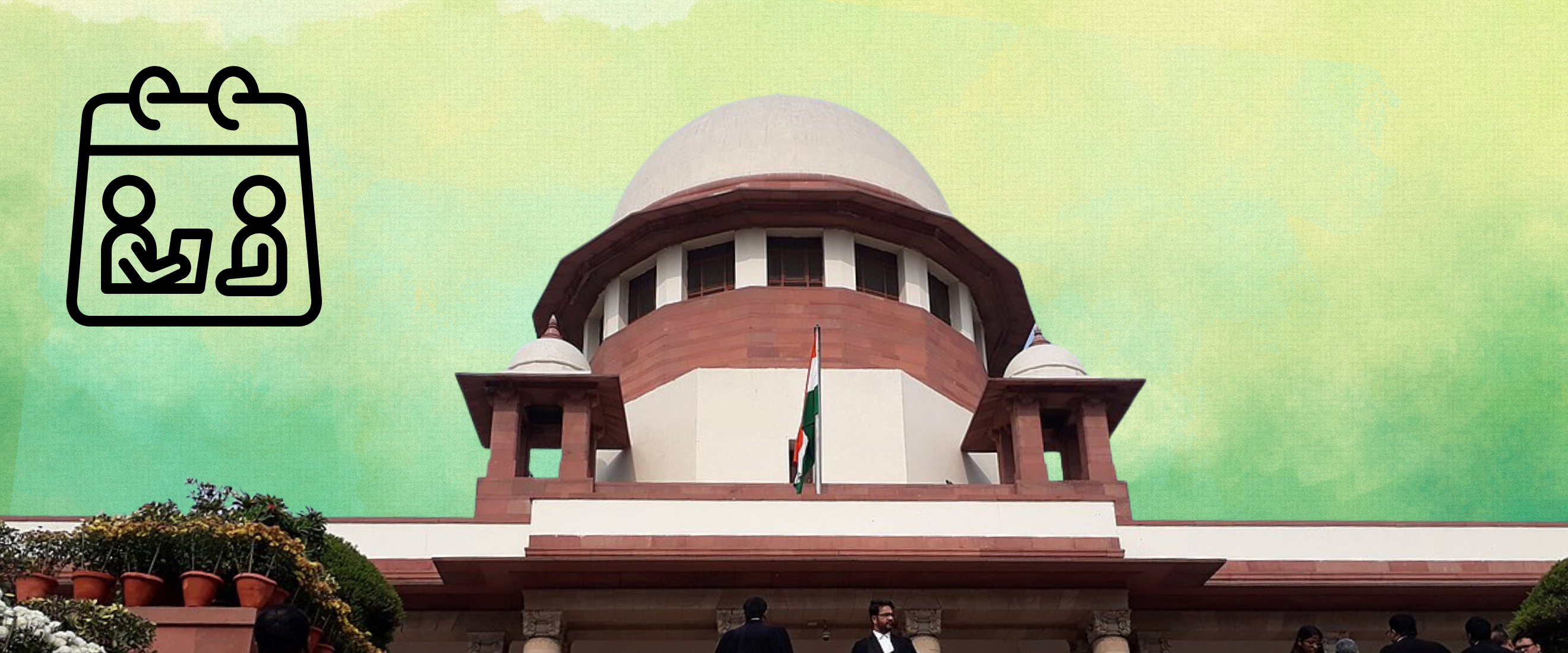Analysis
Discord in the Collegium Provides Rare Insight on Member Deliberations
Two Collegium members objected to CJI Lalit's proposal to elevate four Judges to the Supreme Court through the circulation of a letter.

A recent disagreement among Collegium members provided an insight into the Collegium’s shrouded deliberations. A Resolution dated October 9th, 2022, clarified their internal disagreements, bringing the inner workings of the Collegium to the forefront. On September 30th, 2022, CJI U.U. Lalit, constrained for time, circulated a letter proposing the elevation of four Judges to the Supreme Court. Two Collegium members, adamant on face-to-face deliberations, objected to the method of circulation The Supreme Court’s soon-to-be seven vacancies will remain unaddressed until Justice D.Y. Chandrachud takes over as the Chief Justice of India on November 8th, 2022.
The Collegium system, meant to appoint Judges to the higher judiciary, has been widely criticised for its secretive modus operandi. Critics, from within and outside the institution, have staunchly opposed the system. Even the recently made public Collegium Resolutions reveal little about how the Collegium makes its decisions.
What is the Collegium?
The Supreme Court Collegium comprises the CJI and four other senior-most SC Judges to decide elevations to the Supreme Court. Not much is known about what considerations the body makes to arrive at its decisions.
The Collegium recommends the appointment of Judges to the Union Government. The Ministry of Law and Justice may choose to accept or reject a recommendation. By convention, if the Collegium repeats a rejected name, the Union is bound to accept it.
Delays at CJI Lalit’s Last Collegium Meeting
On September 26th, 2022, the Supreme Court Collegium considered 10 Judges and one Senior Advocate for SC appointments. The Collegium unanimously recommended the elevation of Justice Dipankar Datta, Chief Justice of the Bombay HC, to the Supreme Court. The decision on the other 10 candidates remains shrouded in uncertainty.
The last Collegium meeting was scheduled to be held on September 30th, 2022, to deliberate on the remaining 10 candidates. However, Justice Chandrachud did not attend the meeting, choosing instead to hear cases until 9:00 PM on that date. Resultantly, the Collegium was unable to meet. The meeting would have been CJI Lalit’s last Collegium meeting considering the Supreme Court’s Dussehra vacation from October 3rd, 2022, to October 8th, 2022, and CJI Lalit’s retirement on November 7th, 2022.
On October 7th, 2022, the Ministry of Law and Justice requested the Chief Justice to recommend his successor. As per convention, the Chief Justice does not make Collegium recommendations after nominating their successor. Accordingly, all unfinished deliberations from the 30th September meeting stand closed.
Two Collegium Members Object to Recommendations via Letter
Since the Collegium could not meet on September 30th, CJI Lalit circulated a letter among the Collegium members on the same day recommending four names for elevation to the Supreme Court—three High Court Judges and one Senior Advocate. CJI Lalit’s push for a quick Collegium Resolution is reflective of his goal of maximising Court efficiency. The shortness of his 74-day tenure as CJI is not lost on him.
Two Collegium members, Justices S.K. Kaul and K.M. Joseph approved the resolution, while Justices Chandrachud and Abdul Nazeer strongly objected to ‘the method adopted’ by the Chief Justice. The pushback from the latter two Judges demonstrates their keenness to adhere to two norms—in-person Collegium deliberations, and the CJI’s recusal from making recommendations in their final month in office.
Collegium recommendations through the circulation of a letter are unprecedented. The objecting Judges were adamant that Collegium recommendations must be the result of face-to-face deliberations and not the circulation of a letter. Interestingly, the two Judges did not disclose any opposing views regarding the proposed candidates.
On October 2nd, 2022, CJI Lalit, via a second letter, invited reasons for objecting to the proposed names, or suggestions for alternate recommendations. The letter reiterated that the proposed recommendations resulted from previous deliberations by the Collegium. However, the letter received no response.
Discord Among Judges Provides a Rare Insight into Collegium Deliberations
Little is known about what considerations the Collegium makes to recommend Judge appointments. The September 26th Collegium meeting revealed one consideration—the assessment of Judgments written by candidates for elevation. Collegium members sought time till September 30th, claiming that they required time to assess various Judgments authored by the different candidates for elevation.
The Resolution dated October 9th, 2022, reveals yet another insight into the Collegium. For the first time, the Collegium revealed the stances of disagreeing Collegium members in making Judge appointments. Whether future Collegium Resolutions will continue to do so, however, remains to be seen.
5 High Courts to get New Chief Justices
In a meeting held on September 28th, 2022, the Collegium recommended the elevation and transfer of five High Court Judges as Chief Justices of the Madras, Rajasthan, Orissa, Karnataka and Jammu and Kashmir High Courts.
Justices Jaswant Singh, a Judge of Orissa High Court was recommended for elevation as the Chief Justice of Orissa HC. Justices P.B. Varale, Ali Mohammad Magrey, S. Muralidhar and Pankaj Mittal were recommended to be appointed as Chief Justice of Karnataka, J&K, Madras and Rajasthan HCs respectively.
The collegium, on September 28th, 2022 also recommended the transfer of Justices Sanjaya Kumar Mishra, K. Vinod Chandran, Aparesh Kumar Singh Jharkhand, Bombay and Tripura High Courts, respectively.